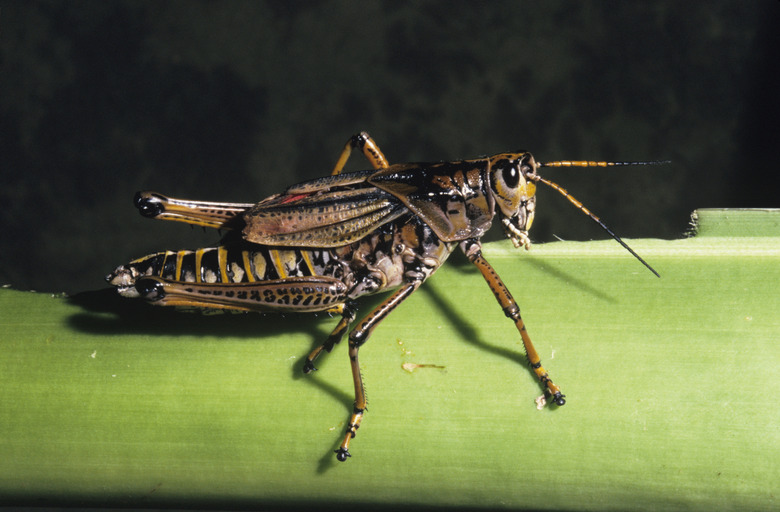How To Apply Canola Oil As A Pesticide
Even if you garden organically, you might be tempted to douse your plants with pesticides when hungry insects drop by for a visit. If you'd rather avoid chemicals, try canola oil as a natural pesticide. Canola, like other vegetable oils, is safe for most plants and won't harm humans or pets. The effects of canola oil differ, depending on the pest. For example, canola oil may poison some bugs or blocks insects' air holes, causing them to suffocate.
Step 1
Step 1
Combine 1 cup of canola oil and 1 tablespoon of mild liquid dish soap.
Step 2
Step 2
Fill a spray bottle with 1 cup of water. Add 1 or 2 teaspoons of the oil-soap mixture to the water. Put the lid on the bottle and shake well to evenly distribute the ingredients.
- Even if you garden organically, you might be tempted to douse your plants with pesticides when hungry insects drop by for a visit.
- If you'd rather avoid chemicals, try canola oil as a natural pesticide.
Step 3
Step 3
Look for pests on your plants that canola oil can help control. Pests affected by oil include aphids, whiteflies, spider mites, scale insects, leafhoppers and certain types of caterpillars. Oil may also help control powdery mildew disease.
Step 4
Step 4
Spray plants with oil on a dry day. Do not spray if the humidity level exceeds 90 percent or if you expect it to rain in the next few days. Too much moisture prevents the evaporation of oil. Don't spray with oil when the temperature exceeds 100 degrees Fahrenheit or drops below freezing, as the oil may damage plants at these temperatures.
- Look for pests on your plants that canola oil can help control.
- Don't spray with oil when the temperature exceeds 100 degrees Fahrenheit or drops below freezing, as the oil may damage plants at these temperatures.
Step 5
Step 5
Spray the canola oil mixture directly on pests to kill them. If your plant is infested with tiny insects, such as aphids, spray the tops and bottoms of leaves, as well as stems and branches.
Tip
If you're concerned about using chemicals in the garden, you can use organic canola oil instead of the regular variety.
Tip
Other vegetable oils that effectively control pests include cottonseed and soybean oil.
Warning
Some plants are very sensitive to all types of oils. These include maples, spruces, Douglas firs, black walnut trees, cedars, hickories and junipers. Do not spray oil on these plants.
Warning
Don't mix oils with pesticides that contain sulfur, as doing so may cause plant injury.
Things Needed
- Spray bottle
- Canola oil
- Mild liquid dish soap
